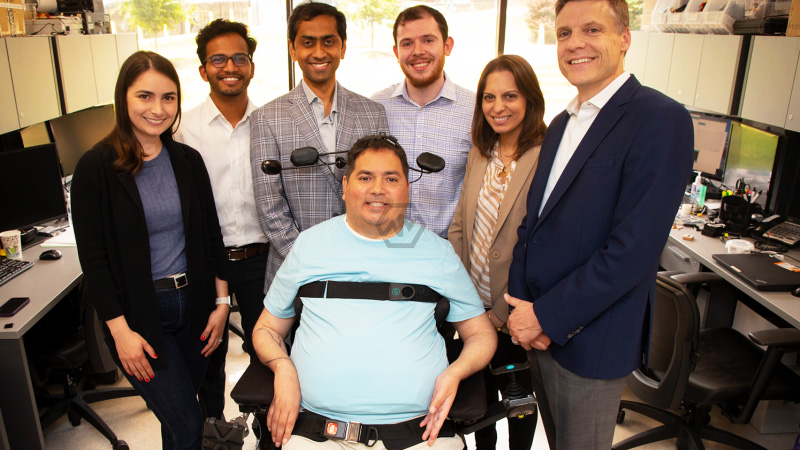A Long Islander deadened in a jumping mishap has turned into a clinical “supernatural occurrence” because of a historic medical procedure imbued with computerized reasoning (man-made intelligence). Keith Thomas, 45, recaptured movement and feeling in his body after going through a medical procedure that associated a PC to his mind through microelectrode inserts.
Specialists at the Feinstein Establishments for Clinical Exploration in Manhasset, NY, are calling it a spearheading case that could make ready for treating different diseases utilizing simulated intelligence innovation.
AI Surgery for the Paralyzed Man
A long time back, Thomas broke his neck and portions of his spine while jumping into a pool, leaving him incapacitated starting from the neck. Regardless of being at first told he may in all likelihood at no point ever move in the future underneath the neck, Thomas wouldn’t surrender trust. His resolute soul and a GoFundMe crusade that raised more than $360,000 assisted him with confronting the difficulties of his new life.
Thomas’ energy and assurance made him an optimal contender for the state-of-the-art medical procedure, as per Dr. Ashesh Mehta, the overseer of the Organization‘s Lab of Human Cerebrum Planning. The high-pressure 15-hour medical procedure expected Thomas to be alert on occasion to speak with the specialists.
- Through everything, Thomas’ humor stayed in one piece, telling wisecracks during the activity.
- A deadened man from Long Island recovers movement and feeling thanks to a historic simulated intelligence medical procedure.
- Clears the way for treating ailments with Man-made reasoning
The medical procedure’s prosperity was remarkable, permitting Thomas to recover movement and hold his sister’s hand interestingly since the mishap. The man-made intelligence-fueled inserts associated with his cerebrum offered him additional opportunities and a brief look at freedom. Thomas’ process is a demonstration of the noteworthy progressions in artificial intelligence and clinical science.
The man-made intelligence-fueled mind embedded in Thomas’ situation opens new entryways for clinical science. Pliancy, a vital idea in the mind’s capacity to adjust and reshape itself, can significantly affect conditions like various sclerosis (MS) and development issues.
With simulated intelligence and progressed neurotechnology, researchers desire to empower individuals with handicaps to recover their lost capacities and work on their satisfaction.



